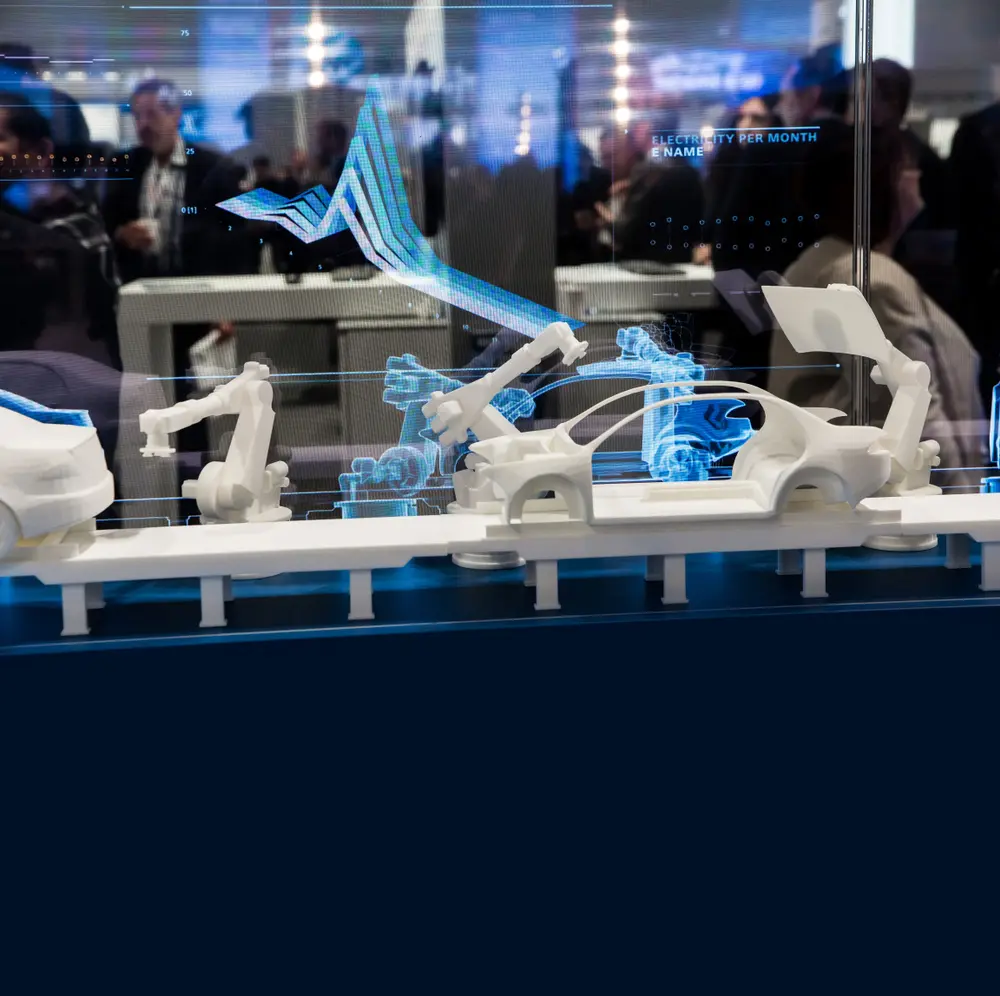I think it all started with the textile industry. To put it bluntly, T-shirts were cheaper to make in Asia. And then the electronics industry! Does anyone remember Grundig from Fürth? They used to be Europe’s largest radio manufacturer. And even the original German mechanical engineering industry eventually followed the call from the East to produce more cheaply and increase profits. At the latest, the current, global delivery bottlenecks show us that it was not far-sighted to give up so much German competence and independence. For several years we have even been talking about the fact that the German automotive industry, the engine of our entire nation, is in danger. Why? Mainly, because it failed to invest in the development of environmentally friendly drive systems in good time or to think about alternative mobility models. But we also read that production has stopped because a few chips from Asia have not arrived.
I think we in Germany must – self-critically – ask ourselves at least two questions: Firstly, did it make sense in the long term (over decades) to always only think in terms of profit optimization and growth? And secondly, have we become sluggish and inflexible in our thinking over time because of all the luxuries we have accumulated?
We can now answer the first question. We are currently experiencing bottlenecks in many areas, which can also be attributed to the fact that we have made ourselves dependent on suppliers in the Far East. Yes, that makes us weaker as a business location. The second question is a bit more complicated. Because it would be too easy to flatly portray all Germans as lazy. At Neura Robotics – and also many other start-ups, you can see that there are highly motivated and innovative people in Germany as well. I guess that there are at least two sides to this problem: the structures that we have created in Germany and thus in German companies are real monsters. Creativity and innovative approaches are nipped in the bud in many places. There is this famous German saying: ‘We’ve always done it that way’. And as long as you are (still) economically successful (enough), there is no reason to change anything. We lack a certain “suffering pressure” – as it has been a prerequisite for important inventions and discoveries since the beginning of human history. And that reveals the second side of the problem. As long as we live in the lap of luxury and have no economic “hardship”, there is no reason for us to change the structures that are slowing us down. Start-ups have this “suffering pressure” by nature because they still have to find their way. Profits are often a long way off and you have to stay “lean” and creative. We lack a certain “suffering pressure” – as it has been a prerequisite for important inventions and discoveries since the beginning of human history. And that reveals the second side of the problem. As long as we live in the lap of luxury and have no economic “hardship”, there is no reason for us to change the structures that are slowing us down. Start-ups have this “suffering pressure” by nature because they still have to find their way. Profits are often a long way off and you have to stay “lean” and creative. We lack a certain “suffering pressure” – as it has been a prerequisite for important inventions and discoveries since the beginning of human history. And that reveals the second side of the problem. As long as we live in the lap of luxury and have no economic “hardship”, there is no reason for us to change the structures that are slowing us down.
Wanting to change structures in existing group tankers would mean cutting management and administrative positions and replacing them with creative and productive jobs. But who will want to “produce” in the future when a whole generation has only online stars and influencer millionaires as role models. And “visionary creatives” – but they don’t belong in German industry on YouTube, do they?
In order for Germany to be able to stand up to both Silicon Valley and the Chinese as a business location in the future, we “only” have to overcome a few barriers in our heads and get rid of unnecessary ballast. Let’s not limit ourselves – as a whole society – with sets of rules that often make no sense and whose origins we have long forgotten. Since politicians will hardly make the start of reducing the much-criticized bureaucracy, companies must start rethinking “in-house”.
It will become more and more important to try things out, to dare something new and to give crazy ideas a chance. If necessary, the wheel has to be reinvented from time to time. And maybe we should even question whether people with the best certificates and the highest qualifications are always the right ones for this task. Because neither says much about whether they can find completely new solutions and make a future in case of doubt. At Neura Robotics, we therefore first question passion and motivation – and then look at the certificates. The success at Neura was only possible in this record time because we went through doors that are closed in established corporate structures. (“We’ve tried that before – it doesn’t work that way!”)
So, if more companies in Germany learn to think like a start-up again, then we will have a location advantage that nobody can take away from us. Yes, we are the land of poets and thinkers! But we were (and are) also the land of tinkerers, inventors and engineers. In a world completely driven by virtual ideas and software, we can hardware –like no other country. For a long time, it was now said: Hardware is only as good as the software behind it. But that will change in the age of cognitive robotics. Both hardware and software can only be as good as the other. Hardware and software must interact perfectly in cognitive robotics. An example: Gripping technology has been pretty much neglected by the industry in recent decades. Now, at Neura Robotics, we had to take matters into our own hands to develop this technology because cognitive robots need “hands” and a sense of touch.
I can’t think of a better place to develop (and produce) software (AI) and hardware under one roof than in Germany. We still have the best training structures and, of course, minds with invaluable experience. That’s why Neura Robotics was founded in Germany.

